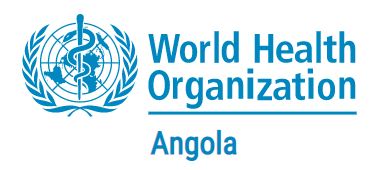Health is a fundamental and universal right, and disease prevention is a global priority. In Angola, as in other countries, non-communicable diseases (NCDs) represent a growing challenge for health systems and the well-being of the population. The World Health Organization includes chronic lung diseases, cancer, diabetes, and cardiovascular diseases in the group of non-communicable diseases. These diseases have become an increasingly heavy burden worldwide, collectively accounting for 74% of all global deaths.
In this context, the Angolan Ministry of Health, together with the World Health Organization and with the generous financial support of the Government of Germany, held a Workshop for the Technical Validation of the Multisectoral Plan for Non-Communicable Diseases. Intending to develop a comprehensive plan to address the main issues related to NCDs, the meeting brought together all stakeholders, from health professionals, academics, representatives of various ministries, United Nations partners and representatives of civil society and the private sector. During the event’s opening, Dr. José Martins Franco, head of the Disease Control department at the National Directorate of Public Health, stressed the importance of everyone collaborating.
”We recognise that the effective prevention and control of non-communicable diseases requires the leadership and coordination of multiple health stakeholders both at government level and involving a range of actors from civil society and the sector.” – Dr. José Martins Franco
It was stressed that preventing and controlling NCDs requires a multifaceted approach involving the health sector and other sectors such as education, finance, agriculture, transportation, communication, and the environment. The active participation of representatives from different sectors during the workshop reflected the collective commitment to tackling this challenge comprehensively and cooperatively.
“The various ministerial sectors need to sit down and debate public health issues because they affect everyone, so they are not isolated issues for the Ministry of Health but also transcend other ministries. – Vladimir Quiar, Ministry of the Environment.
During the workshop, strategies for tackling NCDs were discussed, such as promoting healthy habits, raising awareness about risk factors, and improving access to healthcare. These efforts are aligned with the United Nations’ Sustainable Development Goals, mainly target 3.4, to reduce premature mortality from NCDs by 2030. In addition, priorities have been identified, and a timeline has been established for implementing the plan, monitoring, and evaluating its progress. Dr. Fernanda Alves, WHO Health Officer, reinforced the Organization’s important role in this process:
”WHO plays a key leadership role in coordinating and promoting the global fight against non-communicable diseases and in achieving target 3.4 of the Sustainable Development Goals. In this context, we would like to reiterate our support for the Ministry of Health to strengthen the health system.” – Dr. Fernanda Alves.
In summary, the workshop for the Technical Validation of the Multisectoral Plan for Non-Communicable Diseases in Angola was an essential step in the fight against NCDs in the country. It brought together various players to develop a plan to promote the health and well-being of the Angolan population.
The technical validation of the plan is a crucial step that precedes subsequent approval, resource mobilisation, presentation, dissemination, and implementation. This process guarantees the plan’s effectiveness and alignment with best practices, promoting a healthier life for all Angolans.
Distributed by APO Group on behalf of World Health Organization (WHO) – Angola.
